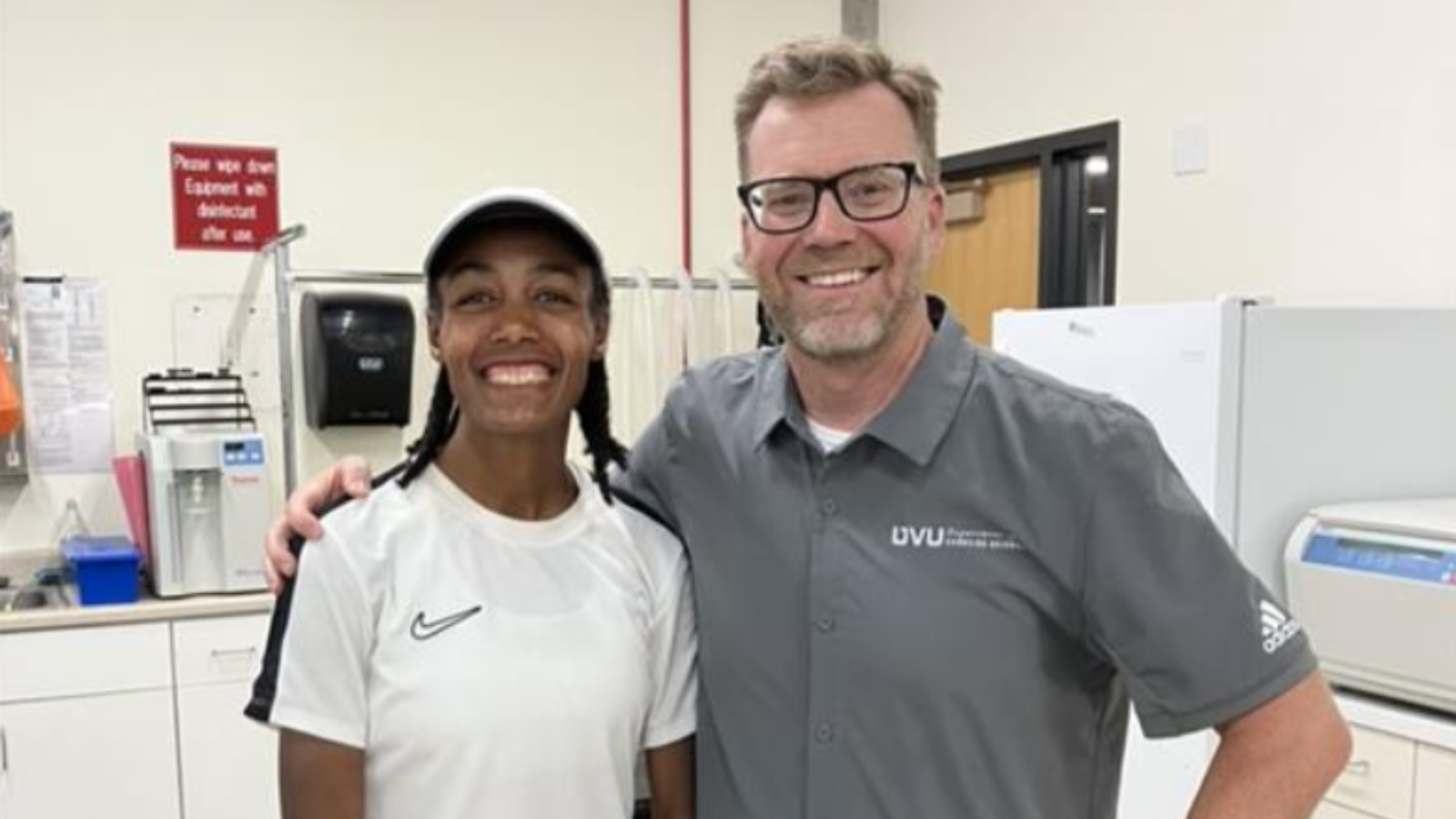This summer, Utah Valley University’s Applied Human Performance Lab played host to one of the world's elite athletes. Sifan Hassan, Olympic gold medalist and record-breaking distance runner, alongside her coach, Tim Rowberry, visited the lab several times each week throughout June 2024.

This summer, Utah Valley University’s Applied Human Performance Lab played host to one of the world's elite athletes. Sifan Hassan, Olympic gold medalist and record-breaking distance runner, alongside her coach, Tim Rowberry, visited the lab several times each week throughout June 2024. The purpose of these visits? To help Hassan acclimate to the intense heat and humidity she would face during the upcoming Paris Olympics.
Dr. Andrew Creer, who has worked with Hassan and Rowberry since the 2020 Tokyo Summer Olympics (held in 2021), expressed his excitement about finally being able to bring their work into the lab.
"It was great to finally get them in the lab and do some actual work," Creer shared, highlighting the shift from his usual role in sports nutrition and performance consulting to hands-on testing and assessments.
Inside the Lab: Testing and Assessments
Hassan’s acclimation sessions took place in UVU's state-of-the-art environmental and altitude chamber. Set to 40°C (104°F) and 40% humidity, the chamber simulated the exact conditions she would experience in Paris. Each session was meticulously planned, aiming to raise Hassan’s core temperature to 38.5°C (101.3°F) and maintain it for at least 40 minutes. This was achieved by having her cycle at a low-moderate intensity, a choice made to avoid increasing her overall running volume.
Creer and his team collected crucial data throughout each session, including core temperature, heart rate, body mass, and blood values. These metrics allowed them to monitor Hassan's sweat rate and changes in plasma volume — key factors in understanding how well her body was adapting to the heat.
Enhancing Performance Through Science
The results of these acclimation sessions are more than just numbers on a chart — they directly impact Hassan’s training regimen and performance. Heat acclimation is known to improve athletic performance in hot environments, primarily by increasing plasma volume. This not only enhances thermoregulation by boosting sweat capacity but also contributes to an overall increase in blood volume. These adaptations reduce cardiovascular and thermoregulatory stress during competition, giving athletes like Hassan a crucial edge when competing in challenging conditions.
A Unique Resource in the Region
UVU's Applied Human Performance Lab stands out as one of the few facilities in the state equipped with an environmental chamber capable of such specialized acclimation sessions. This unique capability was Rowberry’s deciding factor when he was researching heat acclimation protocols for Hassan. Creer said he is proud to offer this resource, noting that it attracts high-profile athletes looking for an edge in their performance.
A World-Class Experience
While Creer has previously worked with locally known ultramarathon runners and UVU athletes, his collaboration with Hassan is on a whole different level.
"For being the best female distance runner on the planet, Sifan is incredibly grounded and easy to work with," Creer shared, reflecting on the experience with admiration. "It has truly been a pleasure working with her."
Inspiring Future Research
The work done with Hassan has sparked new avenues of research within the lab. UVU exercise science students are already investigating the impact of heat acclimation on performance, not only in hot environments but also in milder conditions. Creer said he is excited about the potential findings, which could further enhance the training and performance of athletes at all levels.